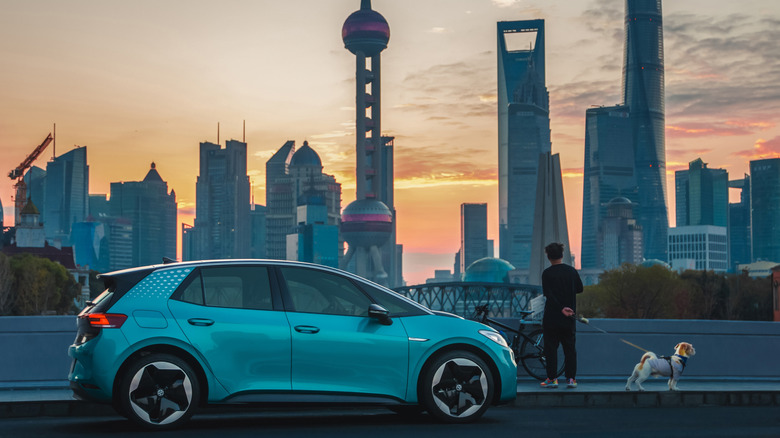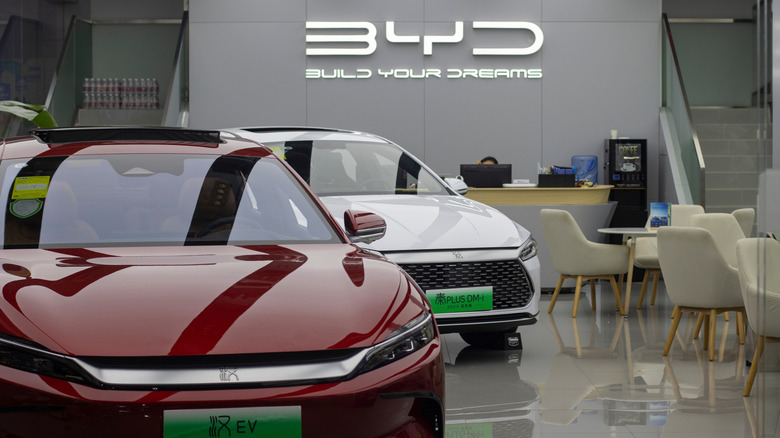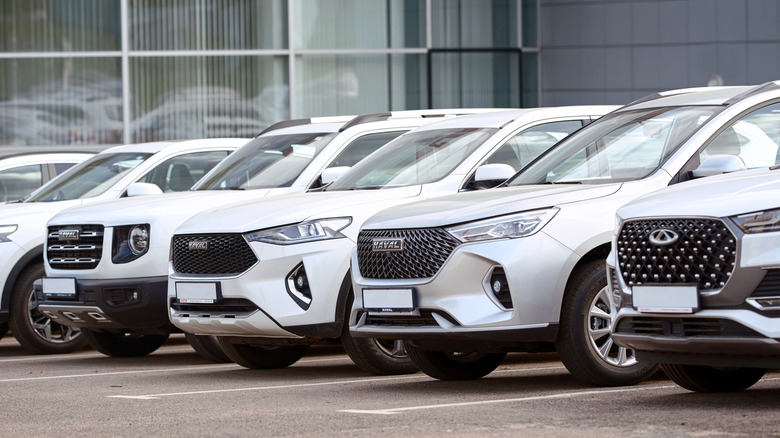What Percentage Of Electric Cars Are Made In China?
In 2024, more than 1.56 million electric cars were sold in the U.S., indicating a shift and increasing consumer preference towards cleaner vehicles. The numbers for 2025 also look promising, given that 300,000 EVs were sold in the country just in the first quarter of 2025, marking an 11.4% increase in sales compared to 2024. These are impressive numbers, no doubt.
However, these numbers look less impressive once you zoom out of the U.S.-centric stats and analyze the state of the EV market in China. In the period U.S. consumers purchased 1.56 million EVs, the figures for the Chinese market was 11 million units. This makes China's EV market more than seven times that of the U.S., enabling Chinese carmaker BYD to overtake Tesla in EV sales. Given that the global output of EVs totaled around 17 million units, two out of every three EVs sold anywhere in 2024 wound up on Chinese roads.
And the gap isn't closing. If anything, it's widening. Remember the impressive 300,000 EV sales that the U.S. witnessed in the first three months of 2025? Here's how China fared in the same period: Chinese buyers snapped up more than 2.5 million electric cars in the first quarter of 2025. That's nearly 875,000 EVs sold in a month. Europe, the next largest market, moved just over 900,000 in the same three months. Put another way, China does in a month what Europe needs an entire quarter to manage. The U.S. won't hit it faster than seven months.
Needless to say, if there's one country that is outright dominating the EV space, it is China. As of 2024, China is the world's largest EV manufacturing hub and accounts for 70% of global EV car production.
How (and why) China pulled ahead
China's gains in the EV space are no accident. We got here thanks to a combination of factors: First, Chinese EV brands moved faster and with more focus compared to Western automakers, who spent years talking about their electric future and shuffling timelines around. Comparatively, Chinese brands simply went ahead and just built cars. Brands like BYD, Nio, and XPeng were rolling out new models every few months. The Chinese consumers got a taste of EVs very early, and the sheer scale of Chinese manufacturing caused prices to drop, even as the line-up got broader, and buyers didn't have to wait around.
It goes without saying that the Chinese government gave all possible support to the EV industry, which helped Chinese EV makers get where they are today. Take, for example, the new trade-in programme backed by the Chinese government, which is designed to encourage people to get rid of older vehicles and switch to newer, cleaner vehicles. More than six and a half million Chinese citizens took the offer, and six out of ten who did so went straight for an EV.
And beneath all this is a less glamorous but hugely important advantage: batteries. China makes the bulk of them — more than 80% of the world's EV batteries are built there. That means cars can be made faster, cheaper, and without waiting for imports. The domestic market is so big that once a new model hits the production line, there's already a queue of buyers.
So while the rest of the world still talks about the "coming age" of electric cars, China has already crossed that line. In many of its cities, petrol cars are starting to feel like relics from another era.
Made in China, sold to the world
We have already established how China's domestic consumption of electric cars is massive. What we did not discuss in detail was the fact that the country has also become the largest manufacturer of EVs and their related components. China's EV production juggernaut ensured that factories in the country produced more than 12.4 million EVs in 2024, accounting for 70% of the global EV production that year. Today, if you see an electric car on the road anywhere in the world, it's likely that it was either completely made in China or a lion's share of its critical components originated in China. Even popular brands like Tesla and BMW depend on Chinese suppliers for their EV batteries.
The sheer dominance and growth of China's EV space can be judged from the fact that, in 2023, China's share in the global EV production stood at just 58%. It took them just 12 more months to gain an additional 12 percentage points and breach the 70% mark. What remains to be seen now is whether China's dominance in the EV space can continue, given any geopolitical challenges the country might face in the years to come.
China's impressive growth in the electric vehicle space has caused alarm bells to ring in the U.S., which eventually led the U.S. government to impose a 100% tariff on Chinese-made cars. These tariffs date back to the Biden era and have been in effect since September 2024. With President Trump doubling down on a hardline stance against Chinese imports — rolling out sweeping "reciprocal" tariffs and reviving steep duties — the road ahead for Chinese-made EVs in the U.S. looks nothing short of uphill.


